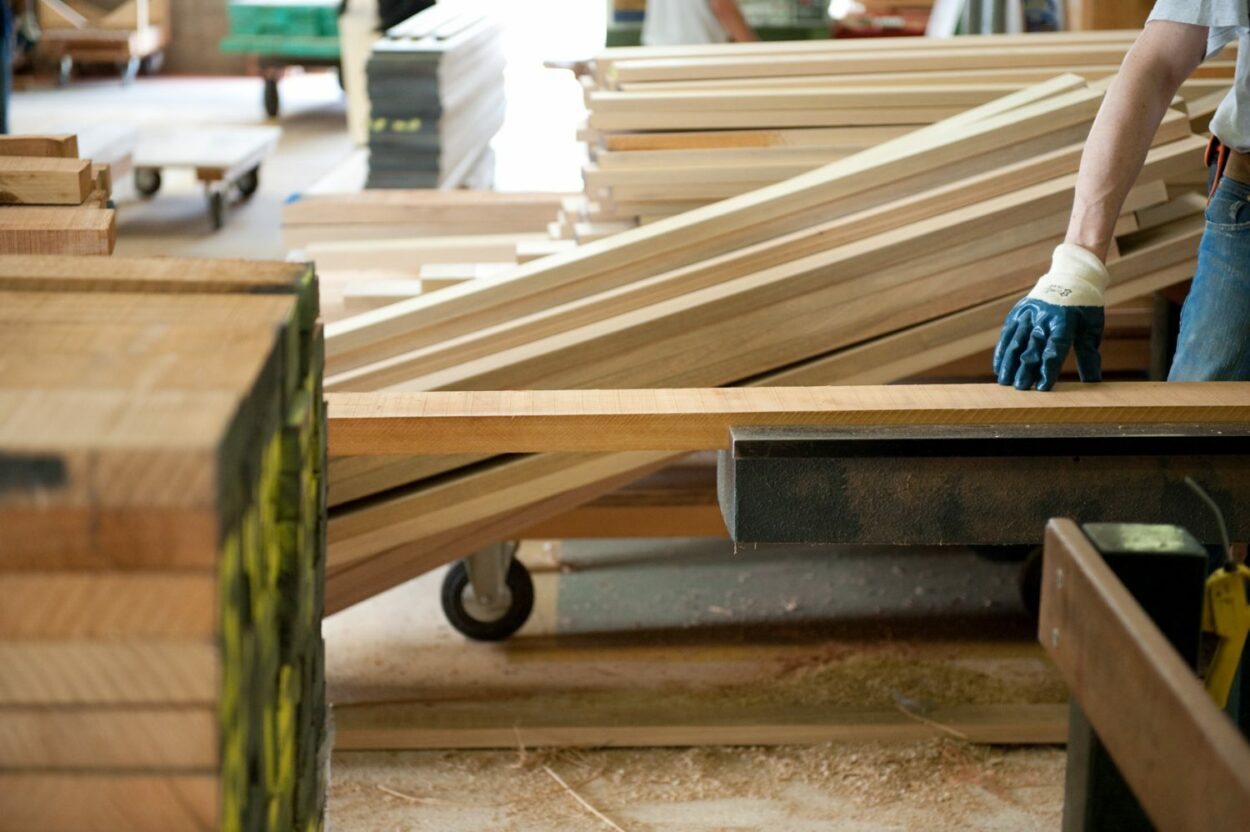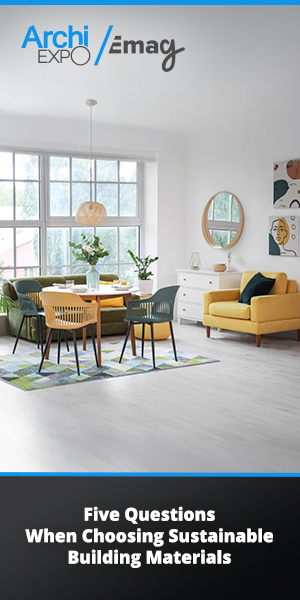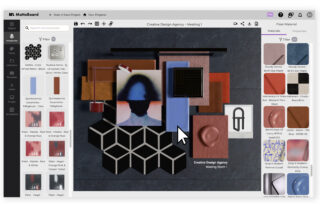France Bois 2024 promotes the use of wood in the infrastructure of the Olympic and Paralympic Games, thus supporting low-carbon objectives and sustainable forest management through labels such as PEFC whose new standards should be implemented around the time of the OGs.
France Bois 2024 plays a key role in the preparation of the upcoming Olympic and Paralympic Games by promoting the use of wood in the event’s infrastructure. This project, initiated by the French forest and wood sector, aims to achieve low-carbon objectives by reducing carbon emissions by 30% compared to the 2012 London Games.
To promote the use of wood, France Bois 2024 raises awareness, provides training, and encourages construction stakeholders and specifiers to incorporate the material into their projects for the Games. Among the wood-based structures under construction, two flagship facilities stand out: the Athletes’ Village and the Aquatics Center. The Athletes’ Village prioritizes the use of wood for buildings under 28 meters, while the Aquatics Center will utilize nearly 2,800 cubic meters of wood. These constructions and developments are designed to endure beyond the Games or be easily recycled, with buildings transformed into apartments or offices and the construction of primary schools incorporating a significant proportion of wood nearby. Final results regarding the proportion of certified wood used in all these structures are yet to be consolidated.
PEFC certification plays a crucial role in ensuring the traceability of wood from the forest to the final construction, providing evidence of sustainable forest management. PEFC France is one of the founders of PEFC (Programme for the Endorsement of Forest Certification), established in 1999 to preserve forests, ensure the well-being of those who live, work, and recreate in them, and to sustain forest resources to meet current and future human needs.
In our interview with Paul-Emmanuel Huet, Executive Director of PEFC France, we learn more about the label, ongoing standard modifications and the France Bois 2024 project.
WATCH: The video below will take you on a visit to the construction site of the village des athlètes. It’s in French, but you can add subtitles and have them automatically translated into the language of your choosing.
ArchiExpo e-Magazine: Can you tell us more about the PEFC label?
Paul-Emmanuel Huet: The PEFC label is a forest management certification system, a voluntary labeling initiative. It is a private certification governed by an organization called PEFC International. This certification is voluntarily applied by forest owners who wish to certify their forests in order to market their PEFC-certified products. The certification ensures the sustainable management of forests, targeting forest owners. It also involves what we call traceability or chain of custody certification, which applies to processing companies that purchase, transform, and resell wood products to the end consumer. For example, if I buy a notebook labeled PEFC, it means that all the actors in the value chain who have handled the material used for the notebook have established a traceability chain and that the material comes from certified or controlled sources. Like all certifications, there is the principle of having an independent third party. For forest management certification, an audit is carried out by an independent third-party certification body. PEFC is the world’s leading certification system in terms of certified hectares, with a presence on all five continents. If I focus on France, PEFC represents approximately one-third of the forest area in the country.
ArchiExpo e-Magazine: Have you seen an increase in engagement since the beginning?
Paul-Emmanuel Huet: The certified areas have increased a lot in the first 10 years and are now increasing at a slower rate, which is completely normal because the system has reached a certain maturity. We work on developing but also maintaining the already certified areas; some enter and some exit due to changes in ownership. With companies, we see a similar consolidated trend. Currently, in France, we have around 3,200 PEFC-certified company sites across all sectors, including timber, energy, and industrial wood, with a significant development trend in the construction sector.
ArchiExpo e-Magazine: And what should we know about the construction sector specifically?
Paul-Emmanuel Huet: The construction sector is experiencing significant growth in France, with an increasing proportion of wood in buildings. Alongside this argument for wood, there is also a growing demand for guarantees regarding traceability and sustainable forest management. Especially for stakeholders at the end of the chain, specifiers, both private and public, such as project owners, project managers, and developers; they play a role in driving a stronger demand for guarantees. We see adjustments in public tenders and in the State’s public procurement guides, which prominently reference certification, for example. There are also a number of initiatives like the Olympic Games with Solidéo, the organization responsible for implementing the Games, which has committed from the beginning to ensuring that 100% of wooden constructions are made with certified wood, whether PEFC or FSC.
READ: Paris 2024: New Public Buildings to Be Made of 50% Bio-based Materials

WATCH our Facebook live interview with Yann Krysinksi, Deputy Head of Project Management at Solidéo, a company created specifically for overseeing the completion of the venues and infrastructure for the Paris 2024 Olympics.
ArchiExpo e-Magazine: When will we see the new label standards in France?
Paul-Emmanuel Huet: Every five years, we revise the forest management standards to ensure they align with the societal, environmental, and economic challenges of the country in question. We are at the end of the revision phase of our five-year cycle, which has lasted almost two years, and we have gathered over 100 stakeholders to rework and reassess the requirements of the PEFC forest management standard and determine how to evolve these requirements for the next five years. The standard has recently been validated by these stakeholders as well as by our members, in our last general assembly. It is now proceeding towards recognition by our international PEFC board of directors, where it will undergo an independent audit to ensure it continues to comply with a set of international requirements that bind all PEFC members worldwide. The implementation of the new standard will likely begin in the second half of 2024.











